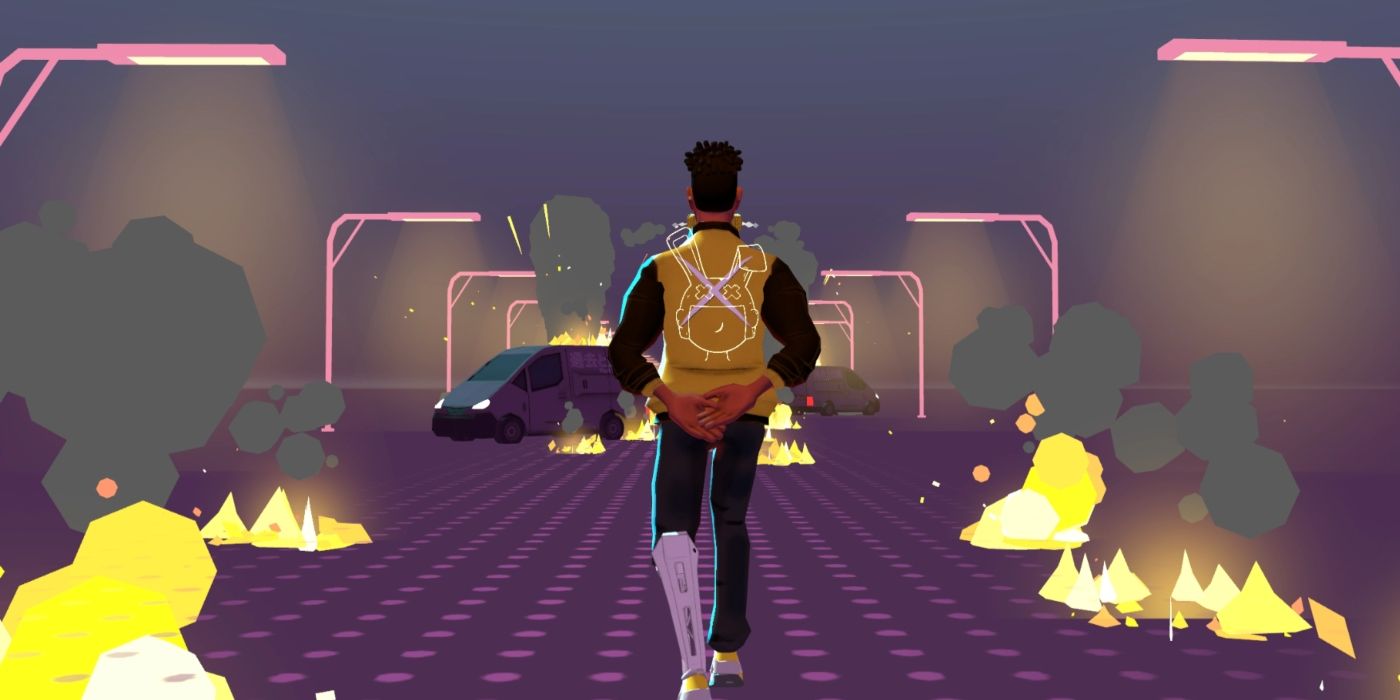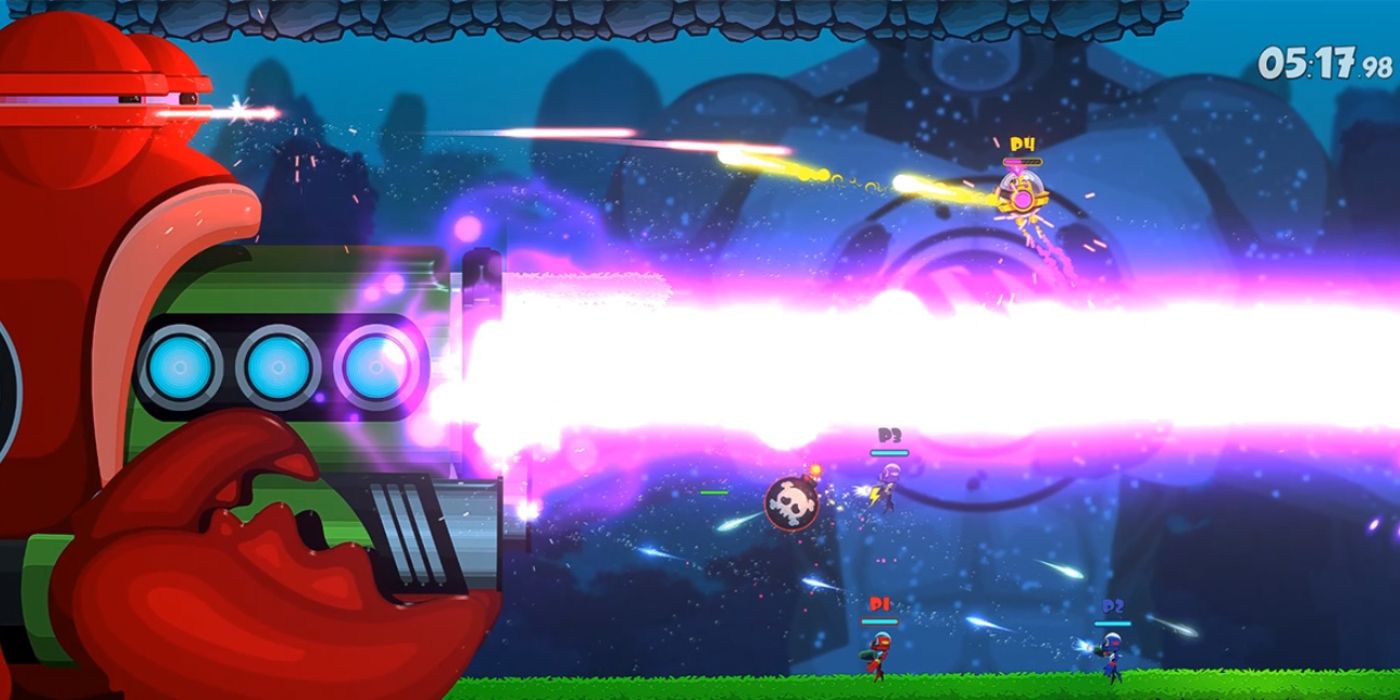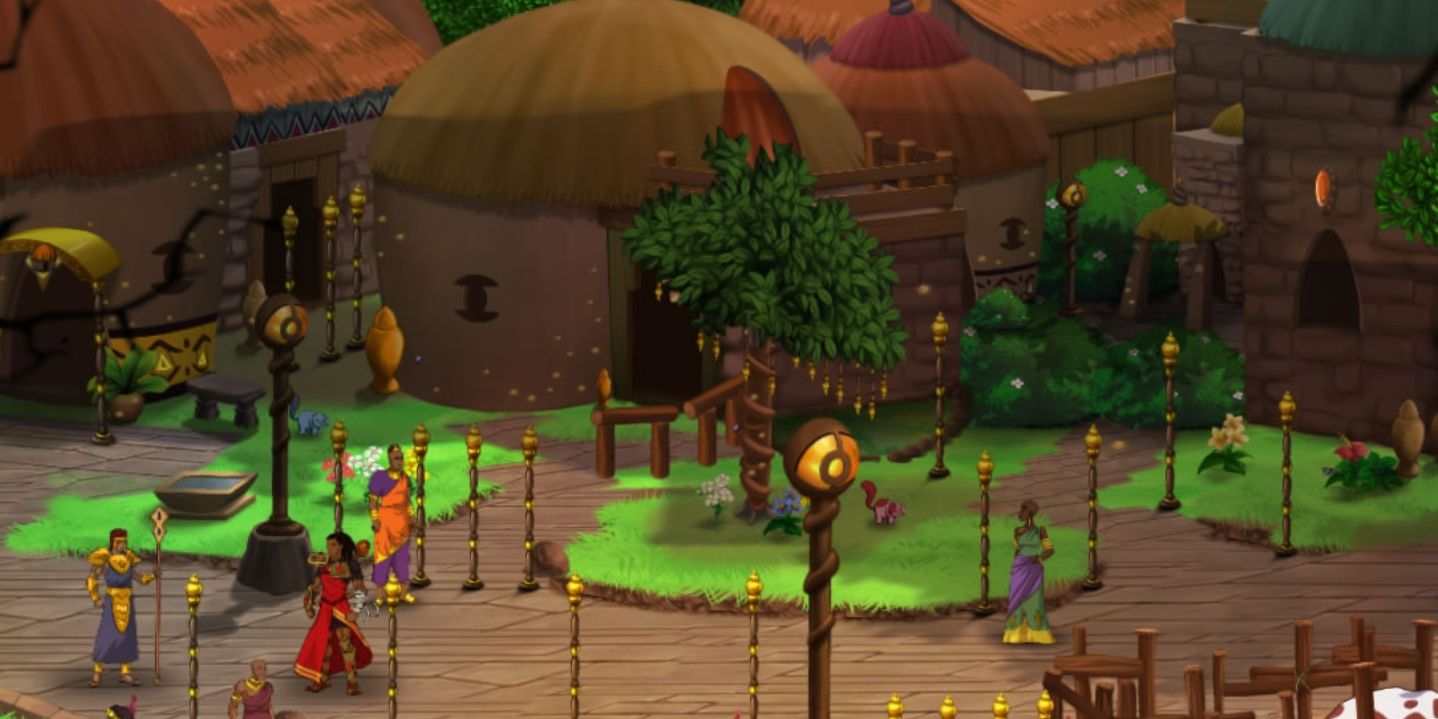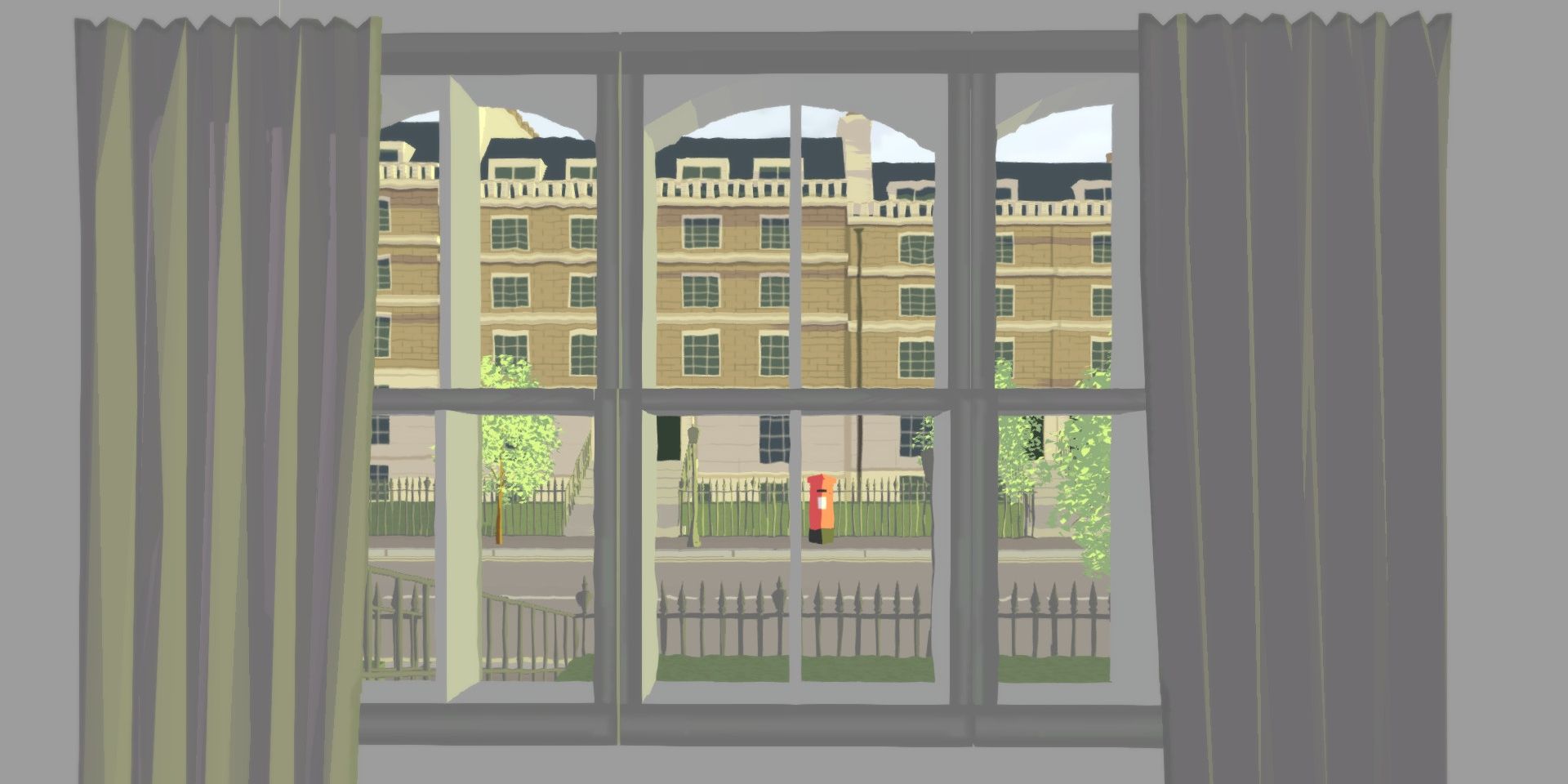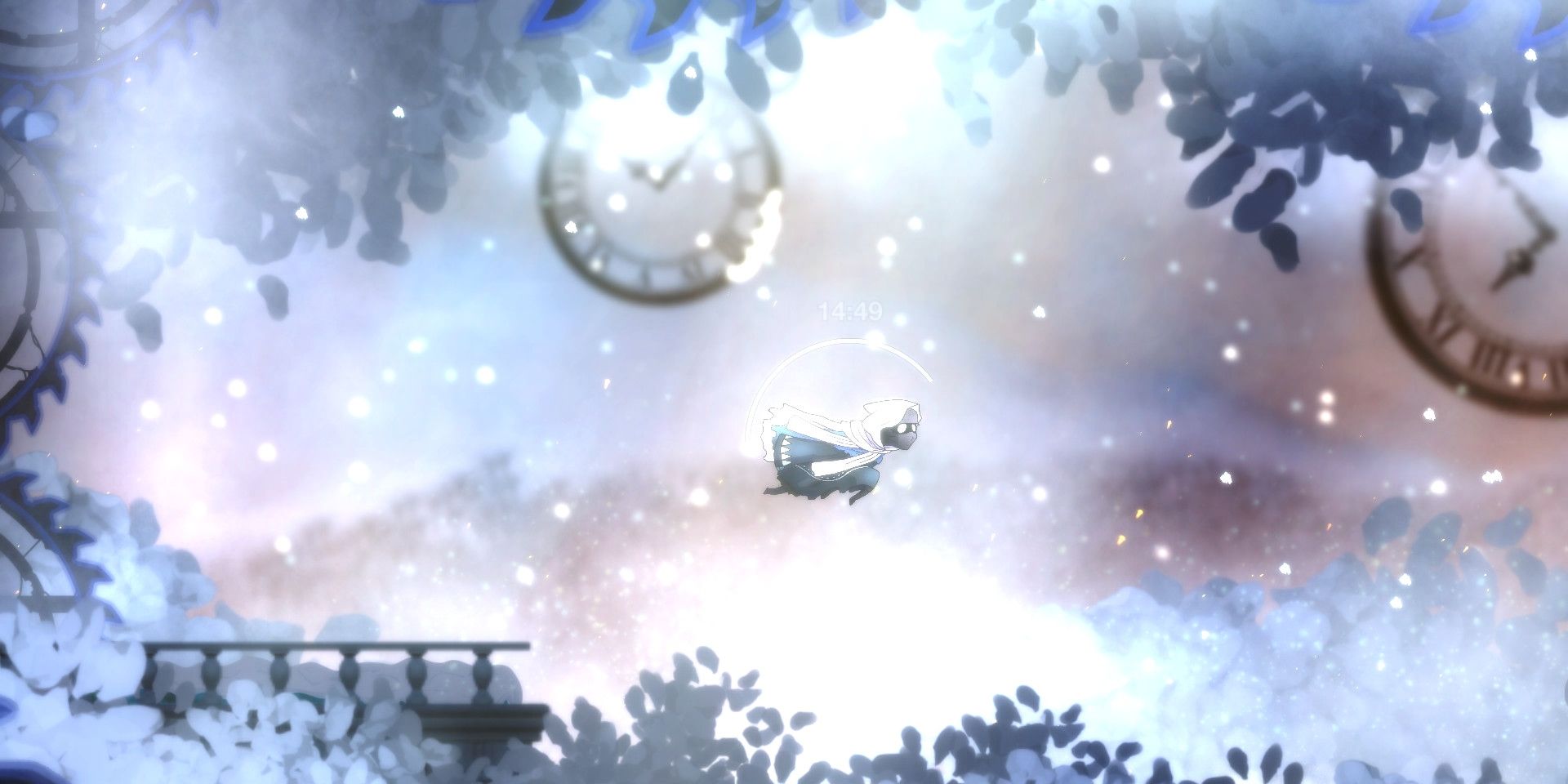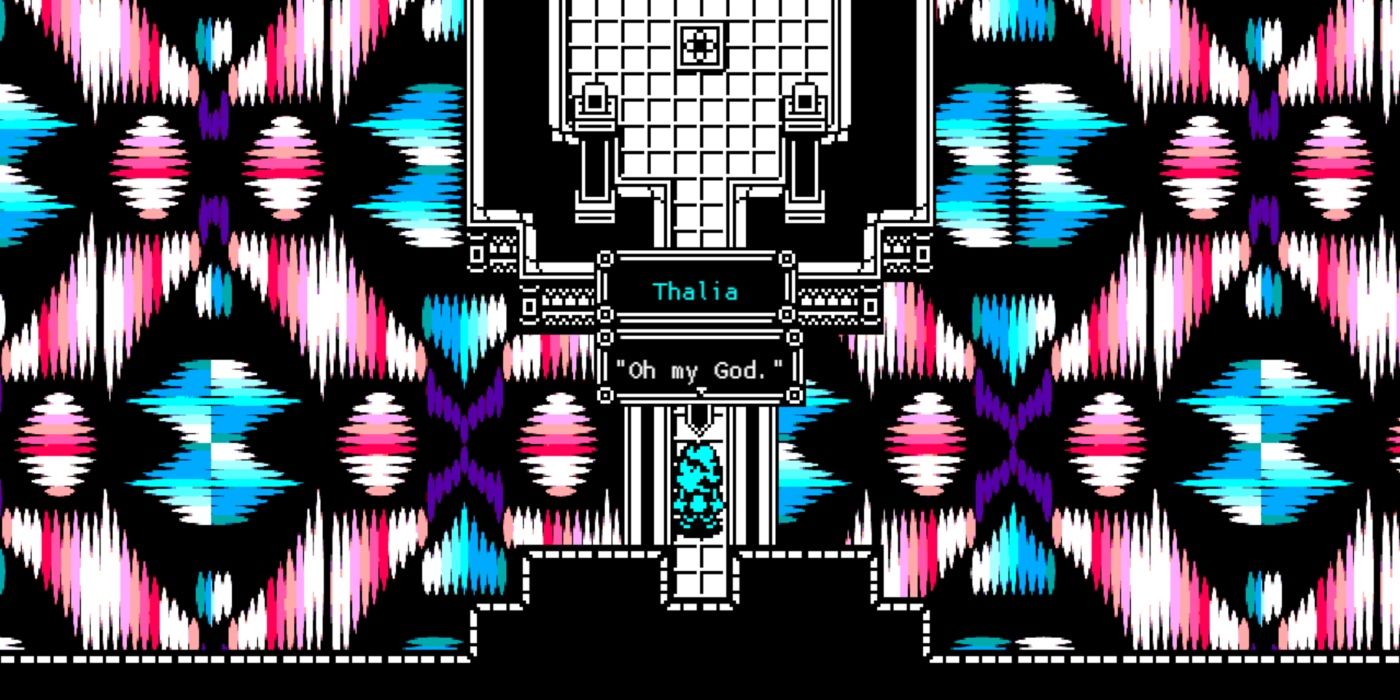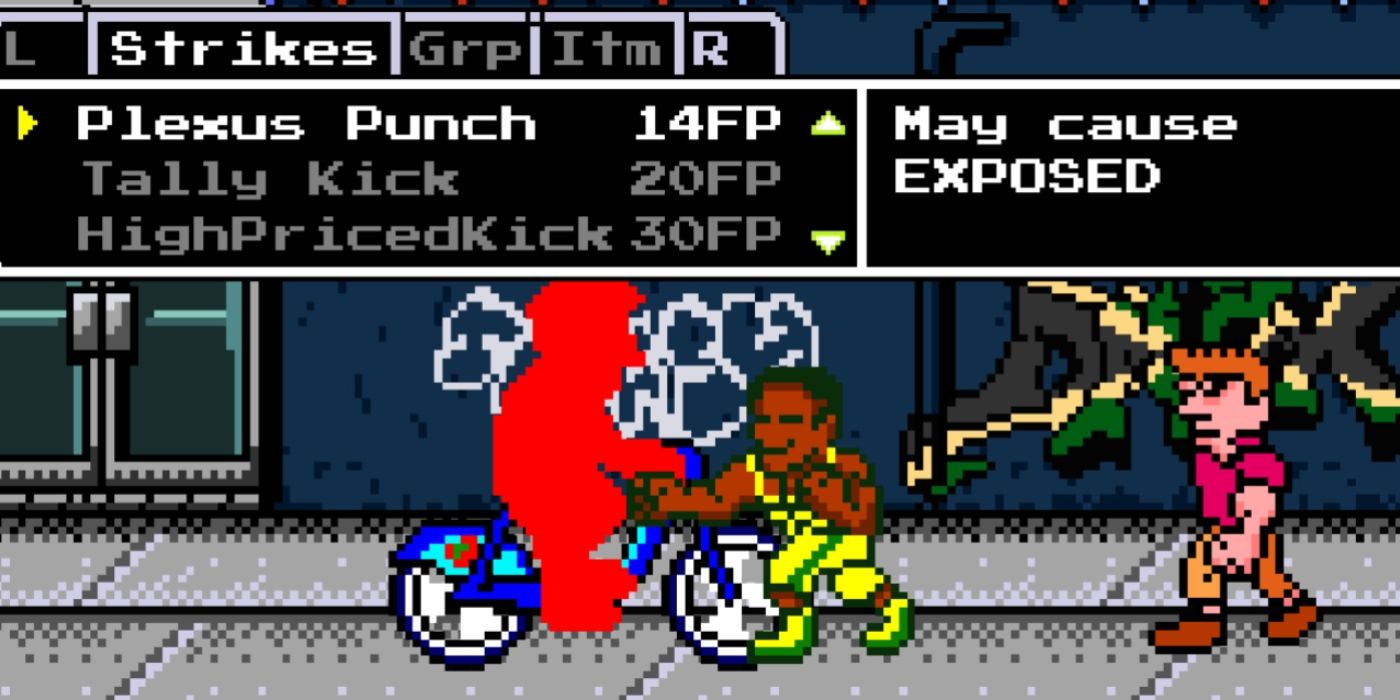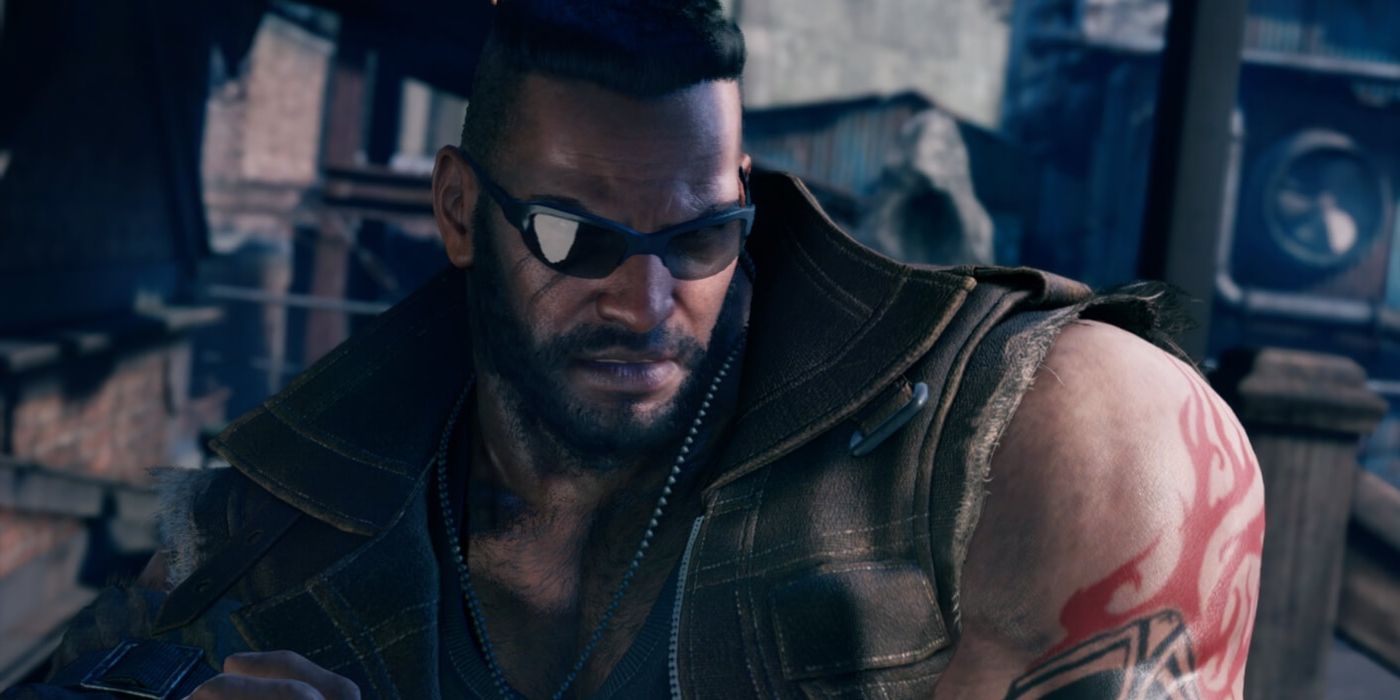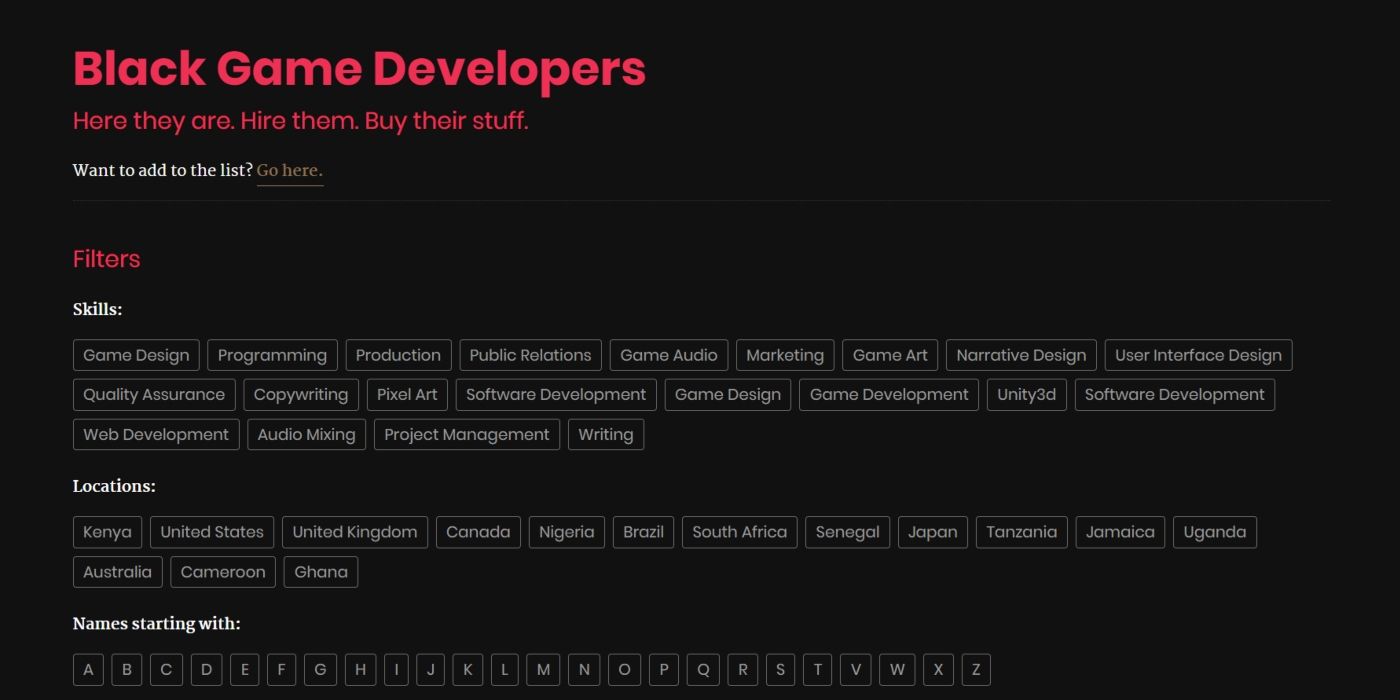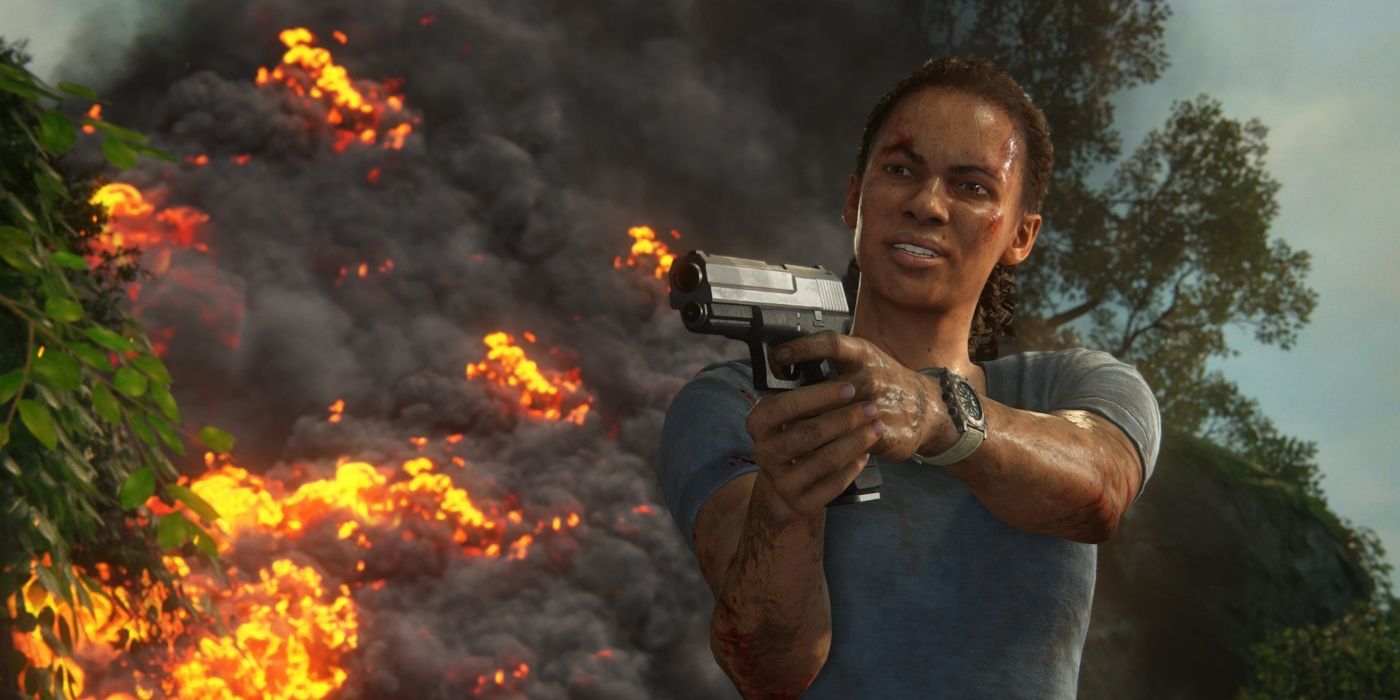Many in the video game industry have voiced support for the black and African American community in the wake of the police killings of unarmed black Americans Breonna Taylor and George Floyd, with several game publishers and developers releasing statements in support of the Black Lives Matter movement. But gaming has done a historically poor job representing black people, both in games themselves and in the development studios and media publications that surround them. As Black Lives Matter protests demand recognition of the daily struggles of black people around the world, black game developers and journalists are bringing awareness to the industry's lack of representation.
In the days following George Floyd's killing, video game publishers and developers publicly denounced racial injustice. Sony and Microsoft showed somewhat rare cooperation on this front, with Microsoft retweeting Sony's statement, adding, "We stand together." Several other companies posted similar statements, showing support for Black Lives Matter on social media.
These posts, while perhaps effective in their potential to reach gaming's notoriously toxic fandoms, have been criticized as hollow. Twitter user Bruxy replied to Sony's statement with a widely circulated image satirizing brands' apparently supportive but ultimately unhelpful solidarity posts, and various games industry personalities have voiced similar thoughts on companies that haven't taken more active steps to help out. As reported by Kotaku, few companies have explicitly denounced police violence, and few offered specifics about exactly what they're doing to contribute.
Companies like Sony have participated in more concrete advocacy, however. The company postponed its PS5 reveal event and reportedly matched donations from game devs like Naughty Dog's Neil Druckmann. Others have taken symbolic action with monetary consequences, like Rockstar's shutdown of GTA Online's massively popular servers during George Floyd's memorial service. EA, often thought of as one of gaming's greediest companies by many fans, implemented a fairly proactive plan for giving back, pledging to donate $1 million to anti-racist organizations, "double match" employee donations through June, give all employees an extra, paid volunteering day, and engage in more conversations with its black employees.
Still, relatively few of these efforts directly address an increase in visibility for black game developers and industry members. Humble Bundle announced a $1 million fund "dedicated to helping publish games by Black developers" (in addition to encouraging Bundle purchasers to donate to the NAACP Legal Defense Fund or Race Forward), but black game devs have largely taken it upon themselves to speak up during this time. Here are some of the ways every gaming fan can support these black members of the industry.
Buy Black-Developed Video Games (& Their Merchandise)
Only 2% of people working in the games industry identify as black, African American, African, or Afro-Caribbean, according to a 2019 International Game Developers Association study, compared to the U.S.'s 13% black population. Despite this low number, many games created by black people are already out there for players to support. Buying black-developed games and the merchandise associated with them is one of the most direct ways to support black developers - not to mention a pathway to some beautiful and creative experiences. If black developers are able to sustain themselves with the games they create, they're more likely to be able to pursue development full-time, potentially bumping up that 2% statistic. Here is a list of games made by black developers, via AfroTech, IGN, Inverse, and Rad Magpie. Titles accompanied by an image are bolded.
- Aurion: Legacy of the Kori-Odan, by Kiro'o Games
- B’Bop and Friends 3D World, by Gre-Fonda and Noelle Hardy
- BLeBRITY, by Jesse Williams
- Before I Forget, by 3-Fold Games
- Black Inventors Match Game, by Uplift, Inc.
- Breeze in the Clouds, by SrBilyon Harris
- Chrono Ghost, by NITETIME Studios
- Combat Core, by MABManZ
- For The Culture, by Ark Creative Company
- Hair Nah, by Momo Pixel
- Hex Gambit: Respawned, by One Man Left Studios
- Matatu, by Kola Studios
- Never Yield, by Aerial_Knight (pictured above)
- Sasha Says, by Tremayne Toorie and Adrian McDaniel
- She Dreams Elsewhere, by Studio Zevere
- Skate and Date, by Gensuta
- Super Space Club, by Graham Reid
- SweetXheart, by Catt Small
- Swimsanity!, by Decoy Games (pictured above)
- Tiny Bird Garden Deluxe, by Super Retro Duck
- Treachery In Beatdown City, by Nuchallenger
- ValiDate: Struggling Singles in Your Area, by ValiDate Game
Additional games made by black developers can be found via POC In Play or the Game Devs Of Color Expo archives.
Learn The Importance Of Black Voices In Game Development
The value of an industry with more black developers, in general, is self-evident: In a space dominated by non-black developers, more black game creators means new ideas, and thus more varied and interesting games. This is especially apparent when black developers take writing or design roles, but some developers seem to believe the value of diversity can't be seen outside those areas. Responding anonymously to the Game Developers Conference's 2020 State of the Game Industry survey, one developer said this about attempting to focus on diversity in hiring:
“Prioritizing gender or racial diversity over craft skills simply to fill an unspoken quota or improve industry/public perception is rarely in the best interest of a development team, especially for hard-to-fill positions."
This is likely a common sentiment among game developers, as the same survey found that, although 24% of respondents said their studio had invested at least a moderate amount in diversity and inclusion efforts, 16% said theirs had invested only a little, and 28% (the largest portion) said theirs hadn't invested at all. Developers' lack of care for diversity exists in spite of the fact a not-insignificant portion of their potential player base is black. According to a 2015 Pew Research Center study, 83% of surveyed black teens played video games, compared to only 71% of white teens.
Even from a purely cynical, monetary standpoint, developers could stand to benefit from better representation of black characters, as it could encourage more of these black gamers to engage with their games. But beyond that, having black developers around can improve the black representation that's already there - even if black developers aren't in major, "hard-to-fill" positions. As NowThis Nerd's Uchenna Nwaogu pointed out, for example, "The shaders and engines common in the industry fall painfully short when it comes to depicting darker complexions, letting characters of color fade into the backgrounds where their lighter-skinned counterparts pop." That's something a non-black lighting engineer, character modeler, or texture artist isn't as likely to consider, so having a black developer in any of those roles could help improve a game's black representation and its visuals, in general.
Just having black developers in a studio at all has the potential to avoid potentially damaging controversies, like Wargroove and Uncharted 4's casting of white voice actors for black characters (see Motherboard), or Final Fantasy 7 Remake's stereotypical localization of Barret Wallace (see Kotaku). That being said, having just one or two black developers isn't enough, as their voices are likely to be shot down by a majority non-black development team - if they feel comfortable enough to speak up in the first place. Hiring a truly diverse group of developers could help solve this problem by giving black developers a support group of like-minded peers.
Suggested Reading, Viewing, & Listening For Further Insight:
- Black Girl Gamers on Twitch
- Blerd's "Current African American Portrayals In Video Games"
- Eurogamer's "The state of blackness in games"
- Kahlief Adams' Spawn On Me podcast
- Kotaku's "What It's Like To Write About Race And Video Games"
- Kotaku's The Optional Podcast
- NPR's Code Switch podcast's "Should Your Avatar's Skin Match Yours?"
- NowThis Nerd's "The History of Black Video Game Characters"
- NYMG's "Gaming Culture Has Always Been Racist – Y’all Just Didn’t Care"
- STATiX J's "Black Character Hair: A Message To Game Developers!"
- The New York Times' "Fear, Anxiety and Hope: What It Means to Be a Minority in Gaming"
- The Strong Museum of Play's "Video Game History is Black History"
- The Undefeated's "Why aren’t more black kids going pro in esports?"
- VICE Games' "Black Skin Is Still A Radical Concept in Video Games"
Follow & Promote Black Voices In The Games Industry
To that end, knowing where to find black game makers is essential. Most of the black-developed games mentioned above are available for purchase, but some are free, and other black game developers may be working freelance, between jobs, or simply working for a larger company and not publishing their own games. Following and promoting the work of black developers can help support those who don't have games directly available to buy. Sites like BlackGameDevs.com and the Black Game Developers Twitter account directly promote black game devs, making them great resources for those looking to hire or support black writers, designers, and more. Paying attention to the summits, GDC talks, and other programs organized by advocacy groups like I Need Diverse Games, Black Girl Gamers, and AnyKey can also help boost black voices in the community. Additionally, sponsorship and donation opportunities allow companies and fans to support events like the annual Game Devs of Color Expo.
While these channels and social media have made it easier to get information directly from these developers, games media still plays a big role in shaping how the gaming community thinks about video games. The perspectives of non-white writers can bring issues to light that would otherwise be overlooked, like the aforementioned Final Fantasy 7 Remake voice actor controversy.
Unfortunately, some black content creators aren't given access to the latest games, according to Spawn On Me's Kahlief Adams, and there are relatively few black voices at many major gaming publications. IGN Executive Editor of Reviews Dan Stapleton recently saw criticism for suggesting black writers "apply apply apply" to job postings, saying it's "HARD" to talent-scout writers of color. Ubisoft Watch Dogs Legion Product & Brand Marketing Manager Andrien Gbinigie summed up the problems with this attitude, saying publications need to pay attention to non-white writers when not in designated windows of awareness like Black History Month (and, presumably, the current period of increased support for Black Lives Matter movements). The same could also be said for games media's coverage of black creators and their work.
Journalist Rod Breslau responded to Stapleton's tweet with a list of POC games journalists, but even more can be found in a massive Twitter thread organized by VICE Games reporter Gita Jackson.
Hold Video Game Publishers Accountable
While diversity initiatives and black voices calling out poor representation periodically bring important issues to light, developers continue to mess things up. The cause - besides the obvious, i.e. not having enough black people in the room - of these repeated missteps is likely a lack of real consequences when black characters are done wrong. In the social media age, however, there's a greater opportunity for gamers to widely criticize poor decisions. If the gaming community continues to speak out about issues like Wargroove and Uncharted's whitewashed character voices, companies are less likely to repeat those errors. And things are getting better, with characters like Assassin's Creed Origins' Bayek, Dishonored: Death of the Outsider's Billie Lurk, and Watch Dogs 2's Marcus Holloway providing a few promising examples of how black representation in games has evolved since the medium's inception.
Perhaps even more important than holding game publishers accountable, though, is holding everyone in the gaming community to that same standard, including oneself. The burden often falls on black people to explain systemic racism to non-black peers, which, as Kahlief Adams said in Spawn On Me's latest episode, "A Lesson In Blackness," is an exhausting process.
"The consistent and constant reeducation of white people about what happens in this country to us on a consistent basis, on a constant basis, is infinitely tiring. [...] There isn't a person on this planet right now [...] who does not understand what is happening to black people all around the world. So when you say that you 'don't know,' and, 'I was so surprised,' and, 'I didn't know how this all could be like this; I don't understand' - motherf***ers, it's not that hard to understand."
To heed Ubisoft's Andrien Gbinigie's warning and avoid only paying attention to minority groups in "their dedicated months of history and celebration," the responsibility falls on every member of the community to seek out education for themselves instead of waiting for black people to do it for them, as well as to continue supporting black voices in times when protests are not dominating news and social media feeds. The gaming community can begin to do this by following and hiring black creators, listening to what they have to say, and giving their work the attention afforded to others', regularly.
Header Image: Never Yield/Aerial_Knight

